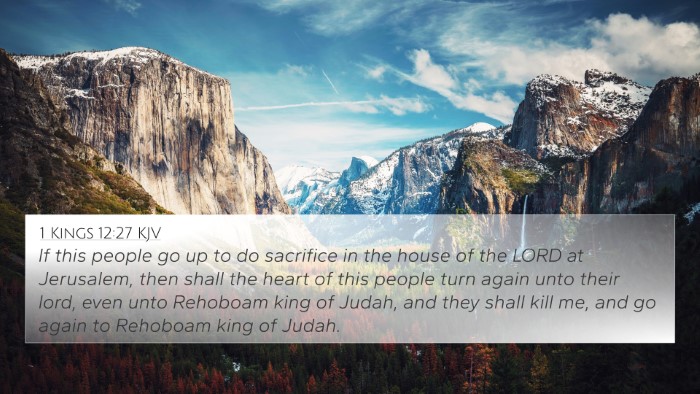Understanding 2 Chronicles 16:1
2 Chronicles 16:1 states, "In the thirty-sixth year of Asa's reign, Baasha king of Israel went up against Judah and fortified Ramah to prevent anyone from leaving or entering the territory of Asa king of Judah."
This verse introduces a significant period in the reign of King Asa of Judah, highlighting the geopolitical tensions between the kingdoms of Israel and Judah. Various commentaries shed light on the implications of this encounter and its broader significance within the narrative of the Bible.
Context of 2 Chronicles 16:1
In the context of 2 Chronicles, King Asa is seen as a reformer who relied on God early in his reign. However, as he faced increasing challenges, his reliance shifted. This chapter marks a turning point in Asa's leadership.
Insights from Commentaries
-
Matthew Henry notes that this verse marks a crucial time when Asa's reliance on foreign alliances over trust in God led to unfortunate consequences. It illustrates the folly of seeking worldly aid rather than divine support.
-
Albert Barnes emphasizes the strategic significance of Ramah in the conflict, explaining that Baasha's fortification efforts were aimed at cutting off Asa’s access to resources and military support, demonstrating the dire stakes of the struggle between the two kingdoms.
-
Adam Clarke delves into the political implications of Asa's actions during this time, suggesting that Asa's previous successes led to an overconfidence that ultimately waned when faced with threats, prompting him to resort to a dangerous alliance with Benhadad of Syria.
Thematic Connections and Cross-References
Within the scripture, this encounter reflects larger themes of faith, reliance, and the consequences of turning away from God. The following cross-references provide insight into these themes:
- 1 Kings 15:16-22: Discusses the conflict between Asa and Baasha, revealing ongoing tensions.
- 2 Chronicles 14:11: Previously, Asa had trusted in God against a vast army, showcasing his earlier faith.
- Isaiah 31:1: Warns against relying on human strength rather than divine power.
- Psalm 20:7: Alludes to trusting in God over chariots and horses, reflecting Asa’s initial faith.
- 2 Chronicles 16:7-9: Reveals the repercussions of Asa’s reliance on foreign alliances, including a prophetic rebuke.
- 2 Chronicles 15:1-7: Shows the importance and blessing of Judah's faithfulness to God during Asa's reign.
- Jeremiah 17:5-8: Contrasts the fate of those who trust in man versus those who rely on God.
- James 4:2-3: Explores how desires lead to conflicts when not aligned with God’s will.
- Micah 7:2: Highlights the disarray of leadership during times of strife, mirroring Asa's challenges.
- 2 Chronicles 20:15-17: Later demonstrates God’s deliverance when faith is restored.
Conclusion
The narrative around 2 Chronicles 16:1 reveals the complexities of faith, leadership, and the interplay of human and divine influence. As Asa’s story unfolds, it serves as a powerful reminder of the importance of maintaining trust in God during times of trial.
For those studying scripture, understanding the connections between this verse and others strengthens one's grasp of Biblical themes. Tools for Bible cross-referencing, such as concordances and cross-reference guides, are invaluable for deeper study. Cross-referencing can reveal profound insights into how scripture dialogs with itself, illuminating the faith journeys of its characters.







